In the world of specialty coffee, Luwak coffee stands out as a one-of-a-kind beverage with a fascinating and somewhat unconventional process. As a product that has both intrigued and shocked coffee enthusiasts around the globe, Luwak coffee combines the unique flavors of the coffee bean with an intriguing method of production.
This article delves deep into what makes Luwak coffee so special, its history, the process behind its creation, and why it continues to captivate coffee lovers from all walks of life.
What is Luwak Coffee?
Luwak coffee, it known as Civet coffee, is a rare and exotic coffee that is costed high for the great taste. The coffee beans are made from cherries that have been ingested and defecated by the Asian palm civet, a small mammal found across Southeast Asia.
However strange it may sound, it’s actually the fermentation process the beans go through in the civet’s digestive system that is responsible for Luwak coffee’s uniquely smooth taste and deep flavor.
The beans are picked once the civet has defecated them, are washed, dried, roasted and serve up a coffee unlike any other. Because of its rarity and the manual labour involved with the production of Civet coffee is a luxury in the coffee world.
A Short History of Luwak Coffee
The origin of Luwak coffee dates to the beginning of Dutch rule in Indonesia. The Dutch started coffee cultivation in Java in the 17th century, but local farmers were not allowed to pick the beans for their own use. This resulted to the invention of an interesting and somewhat incidental way of coffee harvesting.
Local farmers observed that the little Asian palm civet, a creature only active at night, liked to eat some of the ripe coffee cherry on the trees. The cherries went through the civet’s digestion and the beans were excreted fairly whole.
The farmers would gather, clean and eventually roast the beans out of curiosity. What they found was a coffee bearing a far smoother, less acidic flavor profile than the beans they had previously been picking.
Gradually the difference spread, and Luwak coffee was recognised as a valuable commodity. Nowadays Luwak Coffee is made also in some other regions in Southeast Asia, such as Indonesia, the Philippines or Vietnam, however, Indonesia has become the largest producer.
The Process Behind Luwak Coffee

The process of Luwak coffee making is fascinating and complicated – it encompasses multiple stages. Below I’ll give a high-level summary of the process that takes these beans from the floor of a rainforest to your coffee cup:
1. The Civet’s Role
Let the process begin Step One The process starts with the civet, a nocturnal mammal that eats mostly fruit like coffee cherries. While the ripe cherries are consumed, the fruit’s mucilage gets digested in the civet’s stomach; the coffee beans, however, pass through its stomach.
It is during this process that the beans go through a fermentation process that is instrumental in the ultimate taste of the coffee. The beans are digested in the civet’s stomach, which changes their chemical structure and eliminates the bitterness common in coffee.
2. Harvesting the Beans
Once the cherries are eaten, the beans are passed through the digestive system of the civets and are excreted in its feces. The beans are then collected ever so carefully from the floor of the cacao forest and separated from the rest of the waste material. Care is paramount at this stage to choose only the beans.
3. Cleaning and Drying
After your beans have been plucked, they are thoroughly cleaned. The beans get rinsed to flush out remaining impurities such as remaining fruit pulp.
After cleaning, the beans are dried in the sun and spread on large mats or drying racks.
4. Roasting the Beans
Once dried, the beans are roasted to release their pimiento flavor. This step is important because it is where the beans something SPECIAL. The beans are roasted at lower temperatures than regular coffee beans, which helps maintain their nuanced flavor and complexity.
The result is a cup of coffee that tastes unique and is often smooth, earthy, and naturally sweet. The coffee itself is split by the fermentation process in the civet’s stomach which is a very bitter process and the coffee is subsequently rendered much less bitter, and much more taste is refined.
Why is Kopi Luwak So Expensive?
Luwak coffee is one of the most costly coffees on the planet, normally going for hundreds of dollars a pound. It is expensive because:
1. The Labor-Intensive Process
Luwak coffee is very labor-intensive to produce. From harvesting the beans from the wild, to thoroughly mopping, drying, and roasting, everything takes time and effort.
From the time the beans are picked to when the customer receives the product, they leave a trail of products and processes which must all be kept close with respect to maintaining quality.
2. The Rarity of the Beans
Luwak coffee is known to be very unique because it has to be produced under strict circumstances. The Civet’s diet is so selective that the animals only eat very little of the coffee cherries.
Consequently, Luwak is produced in extremely small quantities per annum, making it rare, and highly sought after, a higher price goes without saying.
3. The Role of the Civet
The role of the Civet in the coffee making process also adds to the cost and hassle: Civets are not easily farmed and finicky about their wild beans, which means obtaining their unprocessed excrement is a laborious process.
Moral concerns over the treatment of civets (in some areas of the world) have also given rise to the demand for more sustainable and less exploitative growing and harvesting for the production of Luwak coffee, increasing the price of the coffee even further.
The Ethics of Luwak Coffee

Though distinct in its flavor and production process, Luwak coffee has also been a topic of ethical debate. More recently, many coffee drinkers and environmentalists have sounded the alarm about the conditions under which civets are kept, particularly when used to make the commercially sold Luwak coffee.
At times, civets are confined in unhealthy conditions and force-fed coffee cherries to yield more beans. This is the controversial method of “factory-farming” civets which has caused a furore over potential animal-welfare issues.
Consequently, there has been an increase in demand for ethical and sustainable manufacturing. More and more, companies are emphasizing humane practices, with chase free-roaming and natural foraging as a result.
Moreover, some producers are employing organic and fair-trade certification to apply the principles of sustainable environmental responsibility and social justice as in the energy and waste strategies.
How to Enjoy Luwak Coffee
For some people, for coffee lovers, experiencing Luwak coffee isn’t just about the taste. It’s appreciating the process and history behind every cup. Weather you are drinking it black or light and sweet, taste the smooth and mild flavors of different brewing methods.
You will find some tips to do to get the best from your Luwak coffee here:
Use Freshly Ground Beans
To enjoy most flavorful Luwak coffee, always grind your Luwak coffee bean right before brewing. Birdie and I believe that freshly grounds coffee also keep the complicate aromas and flavors locked inside of your beans for optimal freshness.
Choose a Soft Brewing Process
Luwak coffee is best enjoyed using a delicate brewing method such as pour-over or French press. This makes the most of our delicate tasting notes and you won’t get any of the bitterness that can be associated with stronger brewing methods such as espresso.
Savor the Taste
Luwak coffee have a smooth and sophisticated taste. Give yourself a moment, take every sip slowly and let the taste of earthiness, sweetness and smoothness that characterizes this coffee to truly sink in.
Luwak Coffee Around the World
While it’s most famously from Indonesia, Luwak coffee is one of those brews that has conquered the entire world of coffee. With the popularity of this special brew, it is now brewed in other parts of the Southeast Asia, such as Philippines and Vietnam. In these regions, Luwak coffee is not just a status symbol but an emblem of native heritage.
For the true lover of coffee, a visit to a coffee farm that makers Luwak coffee can be an interesting and satisfying experience. Many of the farms will give tours showing the civets up close and in their natural environment, demos on how it is made and of course a cup of freshly brewed Luwak coffee.
Conclusion
Luwak coffee is not just coffee; it’s a tale of tradition and nature and the incredible path of coffee beans from forest to cup. The unique flavor, historical significance, and crafting process makes coffee a very special coffee creation in the wonderful world of coffee.
This may be a rare and expensive event, and for most, a chance to drink a cup of Luwak is something to cherish as a connoisseur would some rare combination of nature’s splendors and craft with the added dash of wild that makes this brew of a very special nature.
You may be an experienced coffee drinker or you may be new to the world of gourmet coffee, either way, Luwak coffee offers you something unique and special. With knowledge of its history, the process, and the ethical standards, you can appreciate this phenomenal coffee with a greater understanding of the path it follows to find its way into your cup.
Source the Best coffee Luwak Indonesia with FnB Coffee

At FnB Coffee, we are proud to serve some of the best Luwak coffee there is in the market, coming from some of the best producers in Indonesia. We are dedicated in the pursuit of quality and provide our expertise to assure every cup of coffee you create meets the highest standards of excellence.
And our swift shipping ensures that you can enjoy the richness of our Luwak coffee everywhere you are. Purchase today and enjoy a beer that can be appreciated by both food aficionados and beer lovers alike!


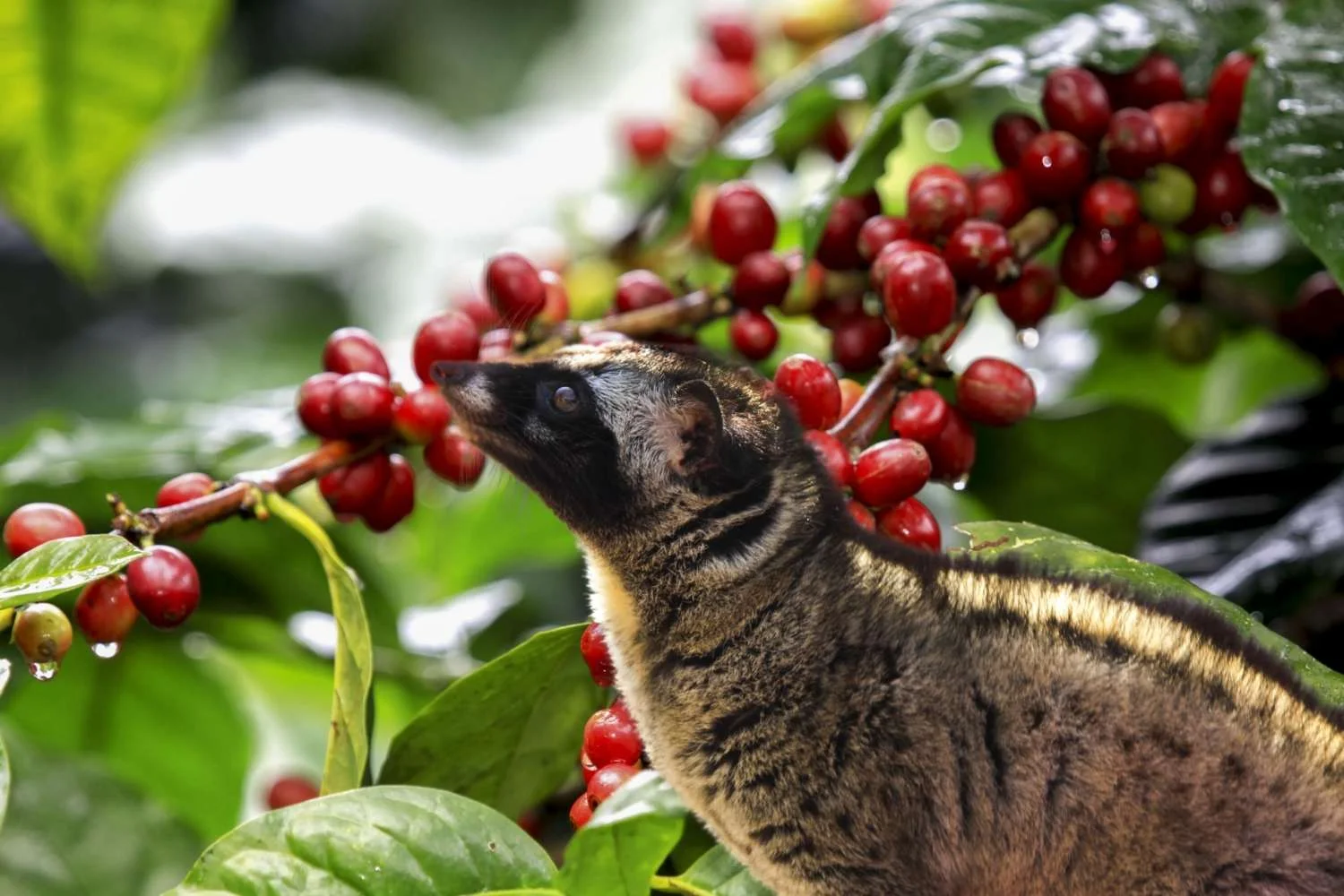











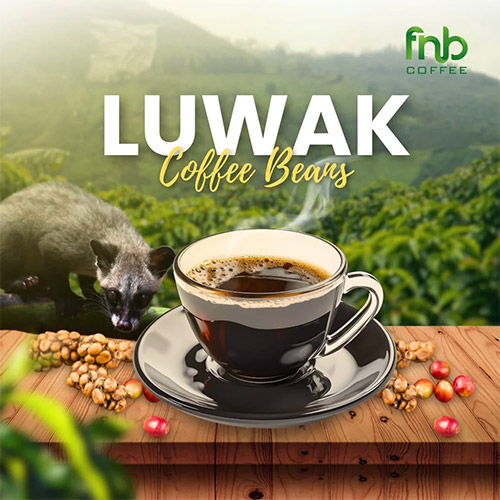


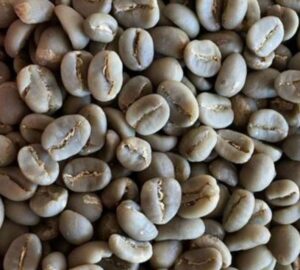
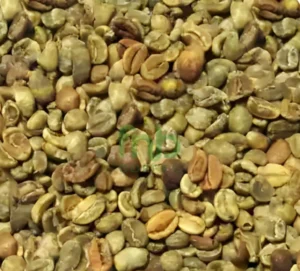
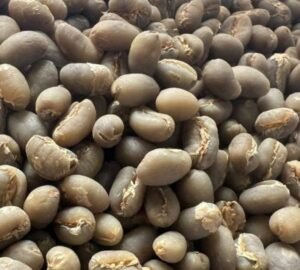








 Arabic
Arabic Chinese (Simplified)
Chinese (Simplified) Dutch
Dutch English
English French
French German
German Indonesian
Indonesian Italian
Italian Japanese
Japanese Portuguese
Portuguese Russian
Russian Spanish
Spanish